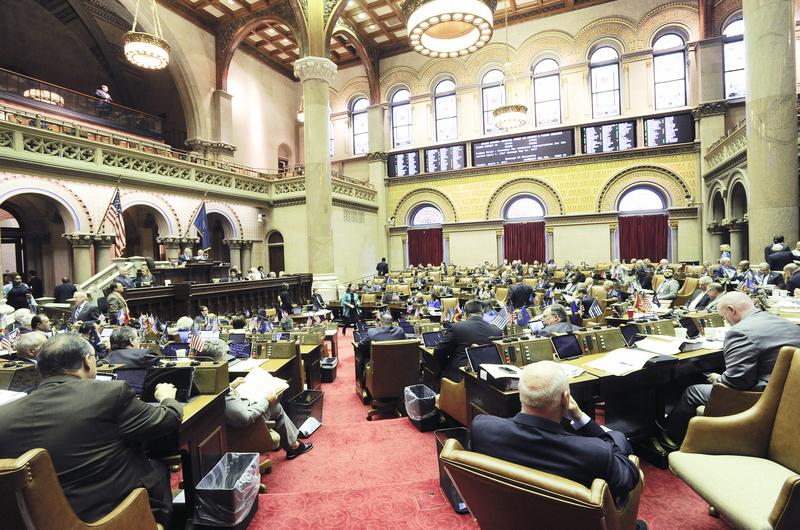
What caused this deficit?
The short answer is that spending has grown faster than taxing, despite caps imposed on both. The slightly longer answer is that tax revenues were overestimated in the past, and as they've come in, New York has been collecting much less than expected.
But if the economy is growing, why are tax receipts down?
The economy has been growing steadily for years and significantly picked up steam in 2017, but people are paying taxes now on income they made in 2016. And apparently people overpaid their taxes that year, so now they're aggressively requesting refunds. There's also some evidence that despite the booming stock market, people are holding onto shares anticipating they'll go even higher — and without selling, there's a shortage of 'taxable events' generating revenue for the state. On the other hand, if workers in the financial sector get large year-end bonuses, that could improve the forecast for 2018-2019.
Intuitively, to close a deficit you need to raise taxes, cut spending or do both. What's being discussed in Albany?
The governor will formally propose a budget in January, and over the following two months there will be heated negotiations. Democrats typically want to increase taxes on wealthy New Yorkers, but with many people losing their ability to deduct state and local taxes under the federal tax overhaul, that kind of tax hike is less likely than ever. The Citizens Budget Commission envisions a smorgasbord of possible "gimmicks and one shots" to get through the budget cycle, including shifting expenses off-budget to entities like the Thruway Authority or MTA and deferring tax cuts and rebates.
How will this be affected by the election-year politics of 2018?
Governor Cuomo will need to get lucky — and creative. For instance, he has been pushing for "congestion pricing" to add more toll fares for drivers heading into New York, as a way to get more money into the MTA. Many city politicians, including Mayor de Blasio, say they're dead-set against it. But in fighting off challengers from his left, Cuomo has a stronger response than usual to those calling for things like a 'millionaires' tax' and a 'mansion tax.' He can say many in the moneyed classes — the "merely rich" but not the "ultra-rich," as the New York Times described them — will already be getting a federal tax hike, indirectly, due to lost deductions. Still, as he runs for a third term as governor and positions himself for a possible 2020 presidential bid, Cuomo can expect strong criticism from Republicans over the fiscal discipline that has produced the current multi-billion-dollar deficit. He has been busy lambasting the GOP for its allegiance to President Trump — who is widely disliked in New York — and to Capitol Hill Republicans. That may or may not be enough to distract voters from the state's budgetary challenges and its perennial economic problems upstate.
